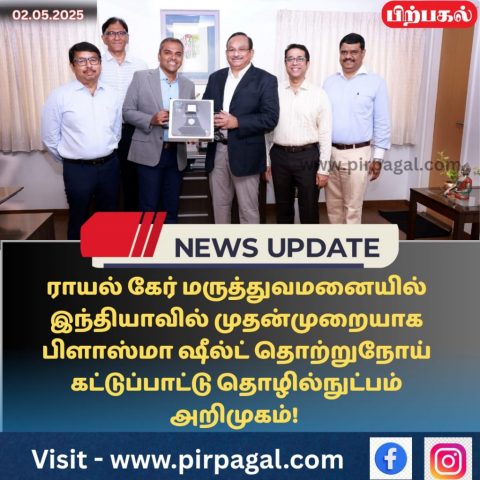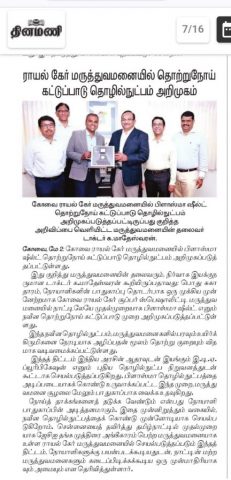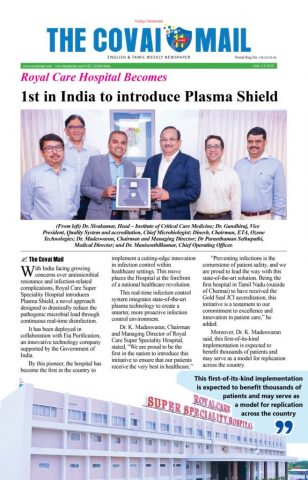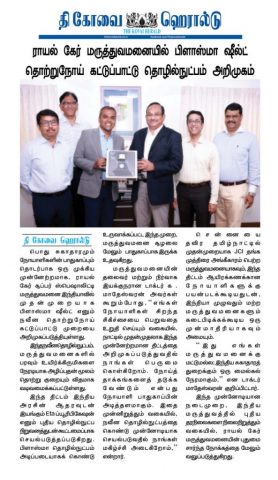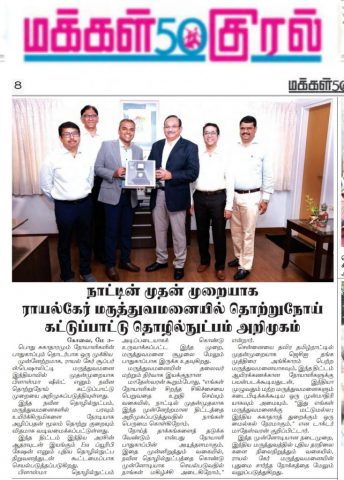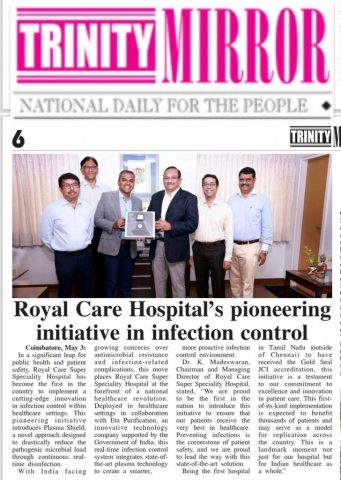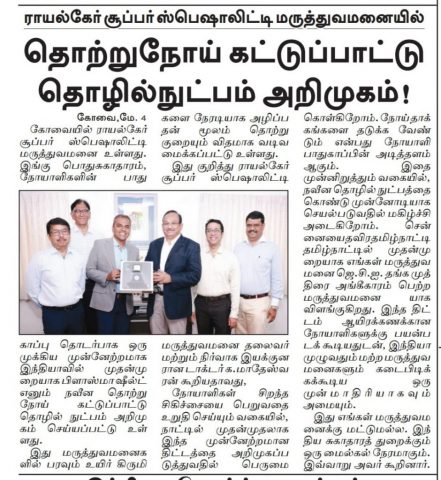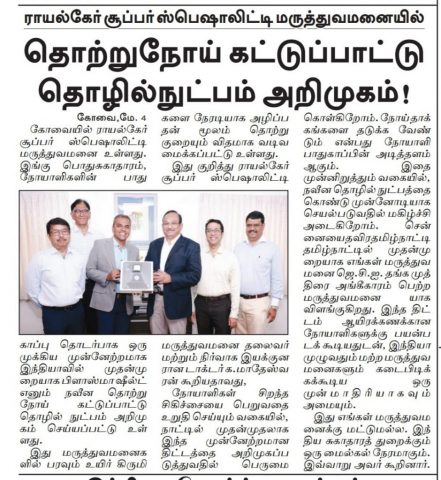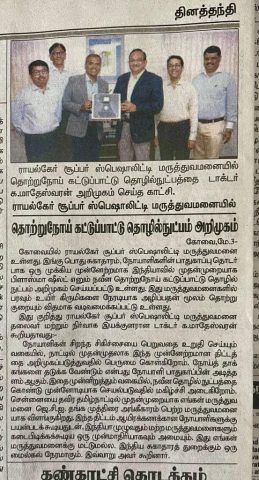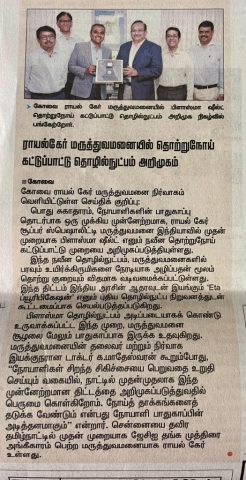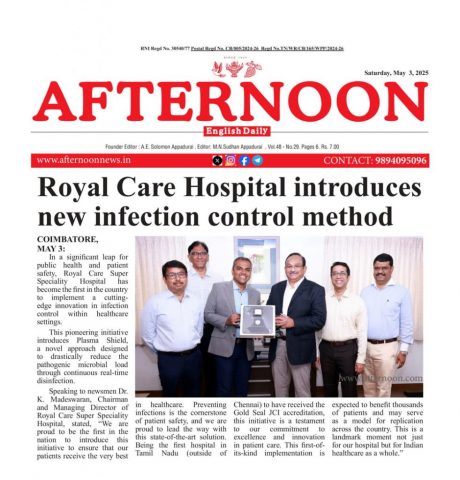Raising the Bar for Patient Safety
Infection control is a critical pillar of patient safety in every healthcare environment. Hospital-Acquired Infections (HAIs) remain a global concern, especially in high-risk zones like ICUs, operation theatres, and dialysis units. In these areas, the surface can become breeding grounds for harmful microbes despite routine cleaning. Traditional disinfection methods offer only short-term disinfection and require repeated applications, increasing both workload and the chances of contamination.
At Royal Care Super Specialty Hospital, we believe that infection prevention must be proactive, continuous, and seamlessly integrated into patient care. To strengthen this commitment, we have introduced Plasma Shield — a powerful surface protection technology that redefines hospital hygiene standards.
 Plasma Shield: Advanced Surface Infection Control
Plasma Shield: Advanced Surface Infection ControlPlasma Shield is an advanced disinfection method designed to create an invisible, long-lasting barrier on hospital surfaces. This protective layer continuously eliminates microbes on contact and keeps high-touch areas germ-free for extended periods — up to 90 days. Unlike conventional cleaning agents, which require frequent application, Plasma Shield offers persistent surface safety with minimal maintenance.
Key Features of Plasma Shield:
- Lab-Tested Assurance – Validated by certified national and international laboratories
- Safe for All Environments – Non-toxic, eco-friendly, and free from harsh chemicals
- Operationally Efficient – Applied without disrupting hospital services
Plasma Shield has already been deployed in critical areas across Royal Care Hospital, including ICUs, Cath Labs, Post-operative Units, and Emergency Wards. By significantly reducing the microbial load on frequently touched surfaces, it provides an added level of protection for both patients and healthcare professionals.
 Hand Hygiene Facilities
Hand Hygiene Facilities
Hand hygiene facilities (hand sanitizers, hand wash stations) are provided throughout the hospital for easy access to ensure compliance with hand hygiene protocols. These facilities are strategically placed in high-traffic zones such as entrances, corridors, ICUs, and OPDs and are replenished regularly to encourage consistent usage.
Hand Hygiene Awareness: Hand hygiene is actively promoted as the cornerstone of infection prevention. Regular public announcements and awareness campaigns are conducted to reinforce this practice among staff, patients, and visitors. In addition, staff receive regular training, and hand hygiene audits are conducted to ensure adherence to infection control standards across all departments.
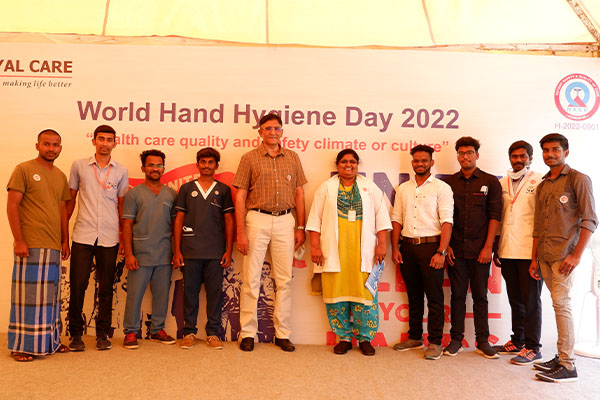
 Water Quality Monitoring
Water Quality Monitoring Periodic water quality assessments are conducted by government-approved and accredited external agencies to monitor for chemical and biological contamination. Supplementing this, in-house water quality checks are carried out at scheduled intervals to ensure uninterrupted access to safe and clean water for all medical and non-medical purposes.
Ozonized Treated Water: All procedural areas, including Dialysis Units, Dental Clinics, Operation Theatres (OTs), Critical Care Units, Endoscopy, and Bronchoscopy units, are supplied with ozonized treated water.
Our hospital toilets are treated with ozone every night to enhance sanitation and reduce microbial load. Routine manual cleaning is performed multiple times a day, with special attention to frequently touched surfaces such as flush handles, taps, and door handles, ensuring high hygiene standards.
 Disinfection of Patient Areas
Disinfection of Patient AreasCorridors and patient care areas are disinfected periodically—at least twice a day, with up to six disinfection cycles in high-risk and critical care areas. In critical zones, advanced disinfection methods like UV-based technology and electrostatic spraying are used to enhance infection control following patient transfers or discharges.

